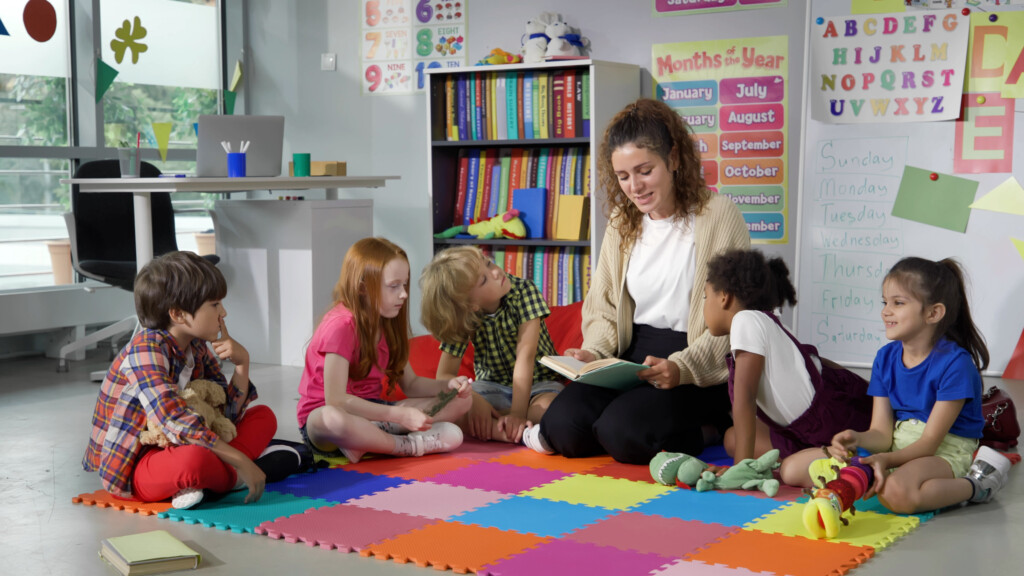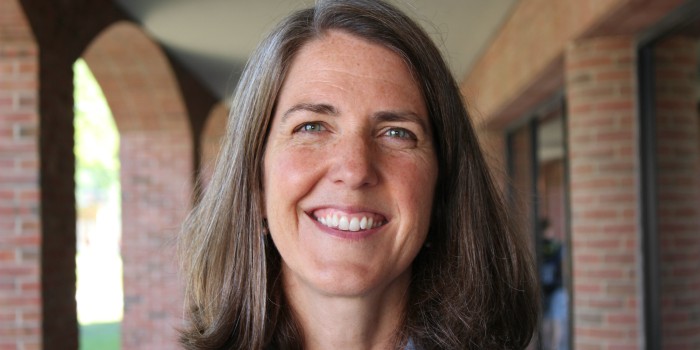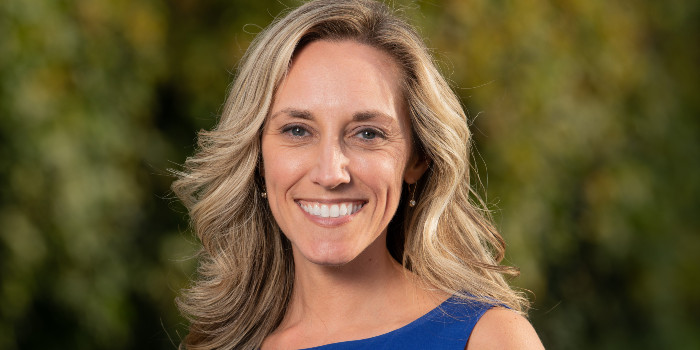Overview
Empower others to communicate with confidence
Are you passionate about helping others communicate? Do you want to have a positive impact on the lives of kids, youth, and young adults? As an SLPA, you will work in an educational setting alongside Speech-Language Pathologists (SLPs) to assist patients who have speech and language impairments. You will play a vital role in identifying communication difficulties, implementing interventions, and monitoring progress.
Courses prepare students to work in a school setting as a speech-language pathology assistant (SLPA). This SLPA Certificate Track meets all of the American Speech Language Hearing Association’s (ASHA’s) guidelines for the preparation of SLPAs.
The course sequence for this SLP Assistant Program requires the completion of 22 credits (7 courses), with 16 credits being academically based and 6 credits concentrating on clinical practice.
Prior to commencing the clinical coursework, students need to complete 25 hours of observation with an ASHA-certified speech-language pathologist. In addition, 100 hours of clinical practice, under the direct supervision of an ASHA-certified speech-language pathologist or state-licensed SLP, will be accrued in combination with the clinical practicum courses that end the program.
What sets UVM apart
Build a Portfolio
Throughout the program, students compile documents and artifacts to be included in a portfolio that demonstrates learning and understanding of the role of SLPAs in schools. The completed portfolio will be graded as part of the clinically-based coursework at the completion of the program.
Learn Online
Complete the SLPA program online at your own pace. Students typically finish in four semesters by taking two online courses each term.
Get Practical Experience with Clients
As part of your coursework, you’ll complete the necessary 100 hours of supervised practicum experience you need to become an SLPA.
Admissions

Is a Speech Language Pathologist Assistant Career a Good Fit for You?
Working as an SLPA is excellent for anyone pursuing a career in the Communication Sciences and Disorders (CSD) field. It’s also ideal for those pursuing a master’s degree, as many bridge programs, like UVM’s Pre-Master’s program, offer part-time options. This will allow you to work as an SLPA while working toward your master’s, which leads to becoming a fully certified SLP.
The SLP Assistant program is appropriate for any individual with a baccalaureate degree and 2.75 GPA. The program provides an SLPA certificate specifying that the recipient has achieved the knowledge and skill level recommended by the American Speech Language Hearing Association (ASHA) for individuals who are serving as support personnel to assist Speech-Language Pathologists with the diverse needs of children with communication disabilities and their families in the school setting. You can find information regarding SLPA licensure by state on ASHA’s website here. You can find information regarding ASHA’s guidelines for SLPA preparation and scope of practice here.
Before applying to the program, check with your state’s Department of Education or Health Department for SLPA licensure requirements, which vary from state to state. Some states may require 1-2 additional courses for SLPA state licensure; often offered online through UVM.
Curriculum
Requirements to Complete the Speech-Language Pathology Assistant Course Sequence
- Students typically complete the program in four semesters by taking two online courses each term.
- Courses must be taken in the order in which they are offered.
- Students need to complete 25 observation hours with an ASHA-certified speech-language pathologist prior to enrolling in the clinical practicum courses (CSD 3250/3260).
- Students will need to maintain a GPA of 2.0+ and complete a minimum of 100 clinical practicum hours in order to be considered for the certificate of completion.
Required Courses for Speech Language Pathology Assistant
- CSD 1200: Introduction to Disordered Communication
- CSD 1220: Introduction to Phonetics
- CSD 1230: Linguistics for Clinicians
- CSD 1940: Development of Spoken Language
- CSD 2010: Speech and Hearing Science
- CSD 3250: Working with Speech Disorders
- CSD 3260: Working with Language Disorders
SLPA Certificate Track Sequence of Online Course Work
The following is a breakdown of when the seven SLPA Certificate Track courses are offered. The course sequence begins in spring which is the recommended starting point. However, students can begin course work in any term. Please speak with an advisor to finalize a course plan.
Spring I
- CSD 1200: Intro to Disordered Communication (3 credits)
- CSD 1220: Intro to Phonetics (3 credits)
Summer
- CSD 1940: Development of Spoken Language (3 credits)
Fall
- CSD 1230: Linguistics for Clinicians (3 credits) or LING 080
- CSD 3250: Working with Speech Disorders (3 credits)
Spring II
- CSD 3260: Working with Language Disorders (3 credits)
- CSD 2010: Speech and Hearing Science (4 credits)
Course Descriptions
Courses are three credits unless otherwise noted.
CSD 1200: Introduction to Disordered Communication
Survey of language, speech, and hearing disorders, emphasizing the importance of understanding such disorders as a part of the fuller understanding of human behavior.
CSD 1220: Introduction to Phonetics
Linguistic, acoustic, and articulatory phonetics applied to the description of speech. Stresses use of the International Phonetic Alphabet with English, foreign languages, and disordered speech.
CSD 1230: Linguistics for Clinicians
Linguistic concepts, applications to clinical contexts. Topics include language components, language processing in the brain, individual differences and disorders, dialects, normal and disordered language acquisition.
CSD 1940: Development of Spoken Language
Speech and language acquisition interpreted in light of current learning and cognitive theory, linguistic theory, and methods of linguistic analysis.
CSD 2010: Speech & Hearing Science
Structure and function of the respiratory, phonatory, articulatory, and hearing systems, coupled with models of speech and hearing as part of human communication. 4 credits.
CSD 3250: Working with Speech Disorders
Students will develop an understanding of the roles and responsibilities of speech language pathology assistants (SLPA) within school or rehabilitation settings. An overview of relevant special education regulations, HIPAA standards, and health and safety issues is provided. Observation techniques, data collection practice, and team collaboration skills, including working with a supervising speech language pathologist (SLP) will be emphasized. Completion of at least 50 hours of practicum experience coincides with this course. Prerequisites: CSD 1200, CSD 1220, LING 1400, CSD 1940.
CSD 3260: Working with Language Disorders
Students will further develop skills commenced in CSD 3250 and learn relevant screening tactics. Intervention strategies including evidence-based practices and response to intervention strategies for articulation, language, fluency, and voice will be explored. Working with diverse populations, communicating with families, and working through difficult treatment situations will be discussed. Completion of at least 50 hours of practicum experience coincides with this course. Prerequisite: CSD 3250.
Career Outlook
Join a fast-growing industry
According to the Bureau of Labor Statistics, “Employment of speech-language pathologists is projected to grow 21 percent from 2021 to 2031, much faster than the average for all occupations.” Because SLPAs support speech pathologists, it can be expected that SLPAs will be in high demand as well. The Department of Labor’s ONET Online reports that in 2021, an SLPA could expect to earn a median salary of $37,740.
FAQ
General Information
SLP’s hold a master’s degree in speech-language pathology. They undergo extensive academic and clinical coursework. They are able to diagnose and treat a variety of communication disorders. SLPA’s have varying levels of education and training. Requirements vary state by state. Some states require an associate’s degree or completion of specific training programs or certifications.
For guidance on how to search for licensed SLPs in your area, please check with Dr. Darin Woolpert at darin.woolpert@uvm.edu
No, there is currently no licensure for SLPAs in Vermont. Some states do have licensure for SLPAs. Please check with your own state’s Department of Education or Department of Health or the ASHA website for state requirements for SLPA training. Currently each state is responsible for deciding their own requirements. The American Speech/Language and Hearing Association (ASHA) provides an option for national certification for SLPAs.
You will be given a certificate of completion, which documents that you took UVM courses totaling 22 credits and completed 25 observation hours plus at least 100 clinical fieldwork hours. This sequence of courses and experiences follows the SLPA training guidelines delineated by ASHA. Please submit this completion form after you have received your final grades for the program. Once your request has been reviewed and successful completion of the program has been confirmed, a certificate of completion will be emailed to you.
We do not accept transfer credits for the SLP or SLPA programs. All courses must be taken at UVM in order to earn your certificate. If you took prior courses at UVM they will count toward completion of either program along with a certificate. However, some applicants do apply with the intent to take just the courses they need in order to apply to a Master’s program or seek SLPA certification in their home state. This is fine, but a certificate of completion will not be issued. If you are planning to apply to a Master’s program at another institution, it is incumbent upon you, the prospective student, to check with your intended college or university’s prerequisite requirements. This will ensure that UVM prerequisites, and this particular online course sequence, meet the requirements for admission, as requirements vary from institution to institution.
For information about Professional and Continuing Education tuition and financial aid, please visit Student Financial Services.
Learn about options for discounts, grants, loans, scholarships, and more on our tuition and financial aid page.
Here is the student financial services link which explains registration dates and billing due dates.
UVM is fully accredited by the New England Association of Schools and Colleges (NEASC). The courses you will take through this program are mostly 3‐credit undergraduate courses, transferrable at the discretion of the receiving institution.
If you already have completed many of these courses and/or clinical work and you wish to complete ASHA’s suggested requirements for SLPA training, you may register for courses in the SLPA sequence if there is room, but a certificate will not be issued. Similarly, if you are lacking some prerequisite courses for entering a Master’s program, on a space-available basis, you may be able to take some of our courses that serve as prerequisites for graduate programs. Again, a certificate will not be issued.
For more information about the UVM Communication Sciences and Disorders graduate program in Speech-Language Pathology, please call (802) 656-3861 or email cnhsgrad@uvm.edu.
If you are interested in pursuing a Master’s in Communication Sciences and Disorders upon completion of the Speech-Language Pathology Assistant sequence, please see the Department of Communication Sciences and Disorders website for information about the graduate program and the application process.
UVM’s MS in Communication Sciences and Disorders is not an online degree and requires a separate application. The Graduate Program Coordinator can be reached at 802-656-3858 or cnhsgrad@uvm.edu.
If you are planning to apply to a Master’s program at another institution, it is incumbent upon you, the prospective student, to check with your intended college or university’s prerequisite requirements. This will ensure that UVM prerequisites, and this particular online course sequence, meet the requirements for admission, as requirements vary from institution to institution.
Courses will be offered in fall, spring and summer for the SLP Pre-Master’s program. If you choose to take the courses necessary to become an SLPA, the preferred semester in which to begin this program is spring. Please inquire with an advisor for an alternative program plan.
Prior knowledge of speech-language pathology is not required.
Yes. You may access the online courses from outside of the US.
Always check with the UVM Bookstore for current class texts. You can look up required readings and books by entering the course number on the bookstore’s website. You may also research availability on Amazon and other publishing outlets.
Please go to this link. There you will find information to help navigate the Brightspace environment.
Workload and Schedule
Most students take two online courses a semester. Expect to spend 8 to 10 hours per week per course.
Yes. You will receive a certificate for completing the SLPA program with the required number of courses, observation hours and clinical hours. You will receive a certificate of completion for taking all seven prerequisite courses for the SLP Pre-Master’s program.
Please submit this completion form after you have received your final grades for the program. Once your request has been reviewed and successful completion of the program has been confirmed, a certificate of completion will be emailed to you.
Admissions
We require copies of your unofficial transcripts.
Applicants must have a bachelor’s degree and a GPA of 2.75 or higher (cumulative or last 60 credits).
Complete a brief online application form
If you miss 2 semesters of coursework your program account will become “inactive” and you would need to contact us for re-activation.
The University of Vermont is able and prepared to certify VA benefits for the SLP Pre Masters Track only.
Tuition bills are sent to each student via email to their UVM email account, generally within 3-4 weeks of having registered for courses. Billing issue and due dates may be found here. Payment for the program happens on a course-by-course basis with the tuition bill arriving in your UVM email so please check email often.
More information about add/drop dates may be found under each semester’s calendar here.
Forms and Licensure
Information regarding licensure by both the State of Vermont and the American Speech-Language-Hearing Association (ASHA), are linked here. Please be aware that it is your responsibility to check with your state’s Department of Education for licensure requirements, since they vary from state to state. Forms you’ll need to complete the SLPA program are also linked.
Advising and Student Support
You have the goal; we’ll help you achieve it
We are dedicated to helping you access UVM. It is our role to get to know your experience and goals, assist you in choosing courses, guide you through registration, and serve as your resource throughout your time at UVM.
Curious if your past college credits apply at UVM? Want to understand where a program will take you after completion? Looking for resources for financial aid, tutors, or UVM policies? We’re here to help.





